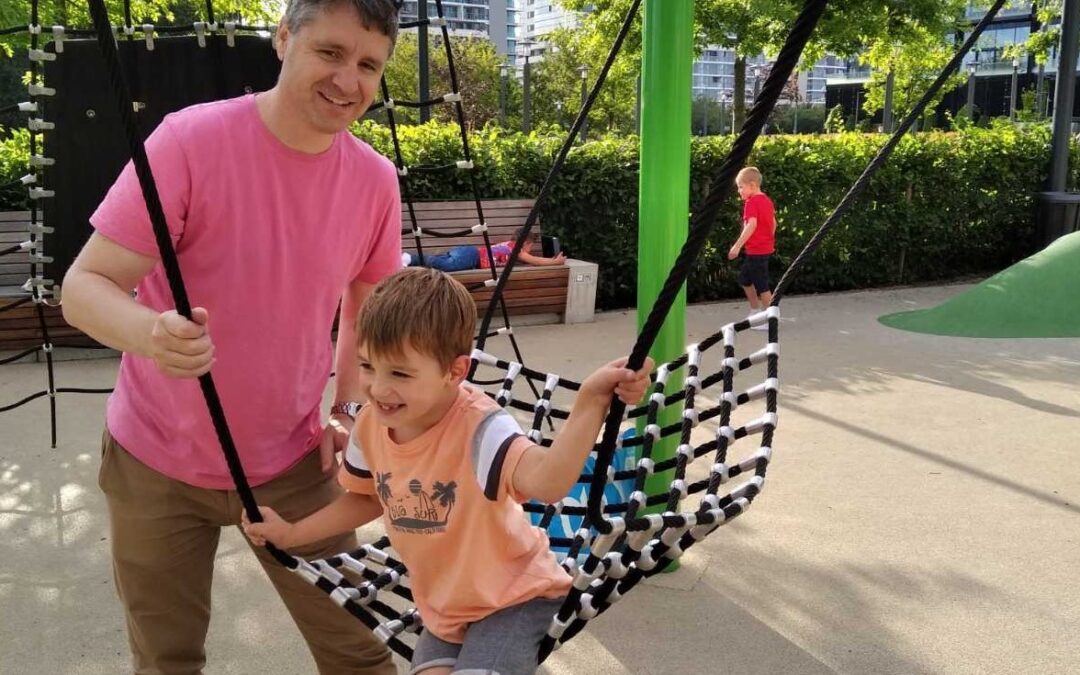A family who fled the Netherlands for Poland with their autistic son after he was placed in foster care due to allegations of neglect are now seeking asylum in Poland.
Parents Conrad and Katya den Hertog, an Australian-Russian couple, along with their seven-year-old son Martin, are currently in hiding in Poland whilst they try to obtain legal protection after a European Arrest Warrant was issued for them.
The family are represented in their asylum application by lawyer Bartosz Lewandowski of Ordo Iuris, an ultraconservative legal body that has previously supported parents seeking to evade child services in Western countries by claiming protection in Poland.
Za nami konferencja prasowa. Cierpiący na autyzm chłopiec został siłą odebrany przez holenderską opiekę społeczną z domu rodzinnego. Powodem były zarzuty rzekomych zaniedbań ze strony rodziców. Rodzina szuka ochrony w Polsce, pomocy udziela jej adw. @BartoszLewand20 z @OrdoIuris. pic.twitter.com/P3jV456pfB
— Instytut Ordo Iuris (@OrdoIuris) July 17, 2020
The den Hertogs fled to Poland after allegations that they had been neglecting their son, who has severe autism, reports Polsat. Following accusations from neighbours, Dutch authorities took the child away from the family home and placed him in foster care.
The parents claim that, for the next 13 months, they only had limited opportunities to see Martin, with visits permitted for a few hours a week. They deny claims of neglect, saying that their son’s developmental disorder has been mistaken as a sign of abuse.
Lewandowski says that the child exhibited signs of “developmental regression” as a result of separation from his parents, and told them he wished to “escape”.
According to the lawyer, Dutch authorities “ignored” Martin’s autism, instead wrongly ascribing his “lack of age-appropriate communication with peers and uncontrolled outbursts of anger…to parental neglect and alleged violence”.
Attempts to reunite the family in the Netherlands proved fruitless, with the courts allegedly failing to support Martin’s rehabilitation and therapy. His parents then decided to take their son, without notifying the authorities, to seek asylum in Poland.
“I heard that the Polish government as well as Poles have quite strong family values and this is what attracted our family here, because we only want our family to be together,” said Conrad, an Australian who has lived in the Netherlands for several years, quoted by Polish state broadcaster TVP.
“That’s why I left my home, my job, even my mobile phone behind to come here. I left my business. We put family first, so we hope that these values are also in line with the values of most people in Poland.”
Czy Polska udzieli ochrony autystycznemu 7-let. Martinowi den Hertog, z którym rodzice uciekli z uwagi na bezzasadne rozdzielenie rodziny przez holenderskich urzędników?O jego powrót do domu walczyli nie tylko rodzice, ale również brytyjska i australijska prasa (np. @DailyMailUK) pic.twitter.com/Pbh79KH9Ev
— Bartosz Lewandowski (@BartoszLewand20) July 16, 2020
The parents have now put in a formal application for asylum in Poland, although a European Arrest Warrant has since been issued, with the police actively seeking to establish the family’s whereabouts.
Lewandowski has told the press that the family would not disclose their location until the police cease their search, explaining that Conrad and Katya den Hertog want to “voluntarily appear in the prosecutor’s office and explain the whole case.”
He added that he hoped to receive support from the Polish government, who should “decide in favour of the parents” for the asylum application, reports Onet.
“This is another case in which the Polish authorities are asked to grant protection to unjustly and unlawfully broken families from highly developed countries,” he added.
The den Hertogs’ asylum claim is similar to other recent requests involving parents from western Europe, who have sought protection in Poland in fear that their families would be split by children’s services. As with the den Hertogs, Ordo Iuris has supported their cases.
In 2018, the Polish government approved an asylum request from Norwegian mother Silje Garmo, who fled to Poland in May 2017 with her 16-month-old daughter Eira, after concerns that the Norwegian Barnevernet child welfare services would take her away.
In 2017, a Norwegian woman fled with her baby to Poland, where she applied for asylum, claiming child services would take away her daughter. Poland accepted her request.@zeitonline looks in detail at the case and how it triggered a diplomatic crisis https://t.co/y3UopQHv60
— Notes from Poland 🇵🇱 (@notesfrompoland) May 16, 2019
The decision on Garmo’s application had been postponed several times before the 2018 approval, through fears that granting asylum could harm diplomatic relations with Norway, revealed Die Zeit in 2019.
Such a crisis was triggered last year when Norway expelled a Polish diplomat who had been active in seeking to help Polish families deal with Norway’s child-welfare services.
Norway said that the diplomat had exhibited “inappropriate behaviour towards public officials”. Poland denied this, calling the claims “unfounded”, and expelled a Norwegian diplomat in response.
As Poland and Norway expel each others' diplomats, @euronews looks at what lies behind the dispute.
Norway claims a Polish consul acted violently towards officials. But Poland says he was simply trying to help Polish families deal with child services https://t.co/7i94eREMpV
— Notes from Poland 🇵🇱 (@notesfrompoland) February 12, 2019
In a further case last year, lawyers from Ordo Iuris also intervened after a Russian father living in Sweden fled to Poland with his three daughters after they were housed with a Muslim foster family due to their mother’s mental illness. In April, a Polish court ruled they could stay with their father.
Main image credit: BartoszLewand20/Twitter

Juliette Bretan is a freelance journalist covering Polish and Eastern European current affairs and culture. Her work has featured on the BBC World Service, and in CityMetric, The Independent, Ozy, New Eastern Europe and Culture.pl.




















